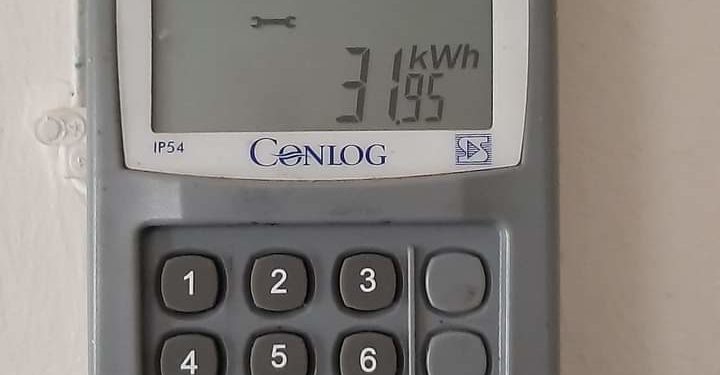In a groundbreaking move poised to revolutionize the energy landscape, the Minister of Energy Ruth Nankabirwa has unveiled plans for a significant shift in the electricity prepaid meter system.
The minister revealed that the nation is gearing up to adopt the use of new technology Token Identifier Numbers (TID), marking a decisive departure from the existing Standard Transfer Specification (STS).
The announcement she made while addressing journalists on Friday at Media Center comes as part of an ambitious initiative to enhance the efficiency and accessibility of electricity services across Uganda.
The introduction of TID technology is expected to streamline metering processes, offering consumers a more seamless and convenient method of managing their electricity usage.
Speaking to press, the Minister of Energy highlighted the pivotal role that TID implementation will play in transforming the energy sector.
“Our aim is to modernize and simplify the user experience while ensuring a reliable and secure electricity supply for all Ugandan citizens. The transition to Token Identifier Numbers marks a significant milestone in our journey towards achieving these objectives,” she said.
Nankabirwa added, “This change is happening on a global scale and will affect all Consumers on the Prepayment Metering system. So to prevent this problem from happening, we have set for ourselves a target to have all Uganda’s Electricity Consumer’s Yaka (prepaid) meters migrated onto the New Token Identification System (known as the TID Rollover) by October 2024 to be able to continue purchasing Units for their Electricity Supply seamlessly.”
TID technology represents a novel approach to prepaid metering, providing consumers with unique identifier numbers that correspond to their specific electricity accounts. This innovative system will enable users to conveniently purchase electricity tokens, facilitating easy top-ups for their meters via various channels, including mobile money platforms and designated vendor outlets.
Furthermore, the move to TID is anticipated to enhance transparency and accountability within the electricity distribution network. By offering a more efficient means of monitoring consumption and managing billing processes, this transition is poised to minimize discrepancies and ensure fairer billing practices for consumers.
The implementation of TID on yaka meters is scheduled to commence in phases across different regions of Uganda. This phased approach is designed to facilitate a smooth transition and minimize disruptions to the existing electricity supply.
As the nation gears up for this transformative change, the Ministry of Energy assured citizens of comprehensive support and guidance throughout the transition period. Information campaigns, workshops, and support services will be rolled out to ensure that consumers are well-informed and equipped to embrace this technological advancement seamlessly.
“Ugandans should not to worry since Electricity Consumers shall be supported by the distribution utilities to do the migration. In this regard, the ministry will soon be launching a countrywide media awareness campaign to educate the public about this program. Please cooperate when they reach out to you, but also, be aware of fraud stars who will want to take advantage of this program to steal from you,” she said.
The shift from Standard Transfer Specification to Token Identifier Numbers on electricity prepaid meters signifies Uganda’s commitment to harnessing innovative technologies to propel its energy sector into a new era of efficiency and accessibility. This move is set to empower consumers, streamline processes, and contribute to the overall advancement of the nation’s energy infrastructure.
With this strategic leap forward, Uganda is poised to set a new standard in the region for modern, user-centric electricity metering, fostering a more inclusive and sustainable energy ecosystem for its citizens.
Why the shift
The Token Identifier, a crucial 24-bit field within STS compliant tokens, serves to identify the date and time of token generation, determining its usage in payment meters. The TID, representing elapsed minutes since the base date of 1st January 1993, operates with a 24-bit field that will eventually rollover to zero.
Come 24th November 2024, the TID rollover will impact all STS prepayment meters. Tokens generated post this date, utilizing the 24-bit TID based on the 1993 reference, will be rejected by meters as outdated, given the TID value encoded in the token will reset to zero.
To counter the TID rollover, all meters will necessitate key change tokens with the roll-over bit set. Additionally, altering the base date from 01/01/1993 to 01/01/2014 becomes imperative to reset the TID stack memory to zero. This key change process will ensure the rejection of previously used tokens, preventing their acceptance due to the TID stack reset.
Managing this TID Rollover key change is critical with minimal impact on utilities and equipment suppliers, necessitating a streamlined process for a smooth transition.
Do you have a story in your community or an opinion to share with us: Email us at editorial@watchdoguganda.com













